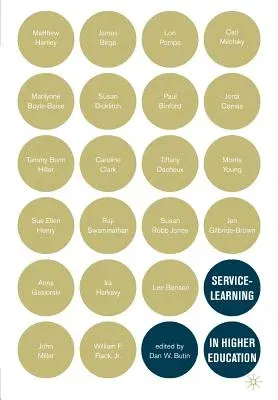D Butin
(Author)Service-Learning in Higher Education: Critical Issues and Directions (2005)Paperback - 2005, 11 August 2005

Qty
1
Turbo
Ships in 2 - 3 days
In Stock
Free Delivery
Cash on Delivery
15 Days
Free Returns
Secure Checkout
Print Length
230 pages
Language
English
Publisher
Palgrave MacMillan
Date Published
11 Aug 2005
ISBN-10
1403968772
ISBN-13
9781403968777
Description
Product Details
Author:
Book Edition:
2005
Book Format:
Paperback
Country of Origin:
US
Date Published:
11 August 2005
Dimensions:
24.46 x
16.97 x
1.42 cm
ISBN-10:
1403968772
ISBN-13:
9781403968777
Language:
English
Location:
New York
Pages:
230
Publisher:
Weight:
421.84 gm

